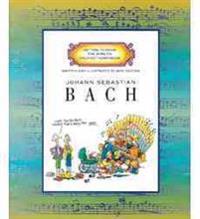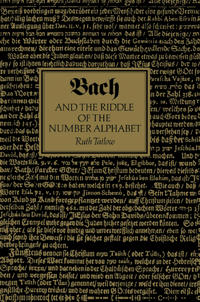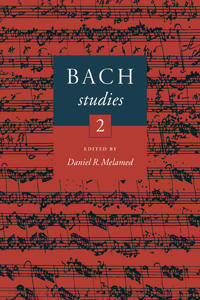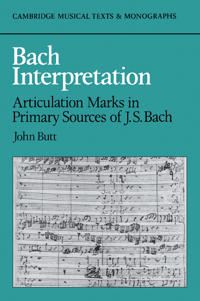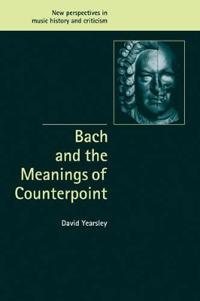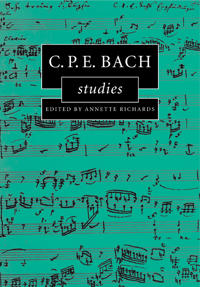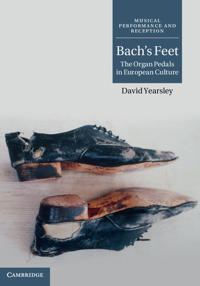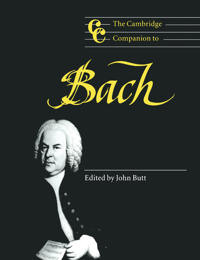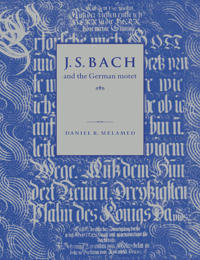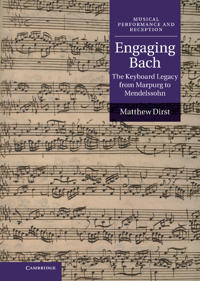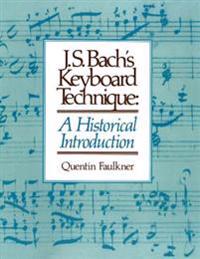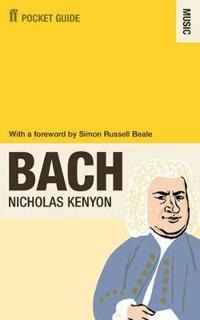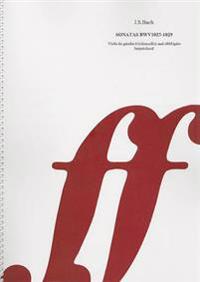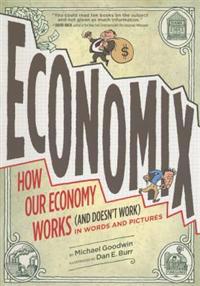Johann Sebastian Bach (Häftad)
avMike Venezia, Donald Freund
ISBN: 9780516263526 - UTGIVEN: 1998-09Focuses on the life and music of the Baroque organist and composer who wrote "The Well-Tempered Clavier," the "Brandenburg Concertos," and many other works[...]
Latin Journey: Cuban and Mexican Immigrants in the United States (Övrig)
avRobert L. Bach, Alejandro Portes
ISBN: 9780520050044 - UTGIVEN: 1985-03-19"Latin Journey" details an eight-year study of Mexican and Cuban immigrants.
Art of Fugue, The: Bach Fugues for Keyboard, 1715-1750 (Pocket)
avJoseph Kerman
ISBN: 9780520253896 - UTGIVEN: 2005-05-27Bach's Cycle, Mozart's Arrow: An Essay on the Origins of Musical Modernity (Övrig)
avKarol Berger
ISBN: 9780520257979 - UTGIVEN: 2008-08-01In this erudite and elegantly composed argument, Karol Berger uses the works of Monteverdi, Bach, Mozart, and Beethoven to support two groundbreaking claims: first, that it was only in the later eighteenth century that music began to take the flow of time from the past to the future seriously; secon[...]
Bach (Pocket)
avPeter F. Williams
ISBN: 9780521001939 - UTGIVEN: 2001-10Many listeners and players are fascinated by Bach?s Goldberg Variations. In this wideranging and searching study, Professor Williams, one of the leading Bach scholars of our time, helps them probe its depths and understand its uniqueness. He considers the work's historical origins, especially in rel[...]
Bach And the Riddle of the Number Alphabet (Pocket)
avRuth Tatlow
ISBN: 9780521028011 - UTGIVEN: 2006-04In 1947 the theologian and musicologist Friedrich Smend published a study which claimed that J. S. Bach regularly employed the natural-order number alphabet (A=1 to Z=24) in his works. Smend provided historical evidence and music examples to support his theory which demonstrated that by this means B[...]
Bach Studies 2 (Pocket)
avDaniel R. Melamed
ISBN: 9780521028912 - UTGIVEN: 200611This 1995 volume brings together essays on J. S. Bach and members of his family by a distinguished group of scholars. The essays address Bach's compositions, his knowledge of the musical past, his study of contemporaries, and the cultivation of his own music by later generations. The studies draw on[...]
Bach Interpretation (Häftad)
avJohn Butt
ISBN: 9780521031806 - UTGIVEN: 2006-11This study is a comprehensive assessment of J. S. Bach's use of articulation marks (i.e. slurs and dots) in the large body of primary sources. Dr Butt analyses the role of such markings within the compositional process, how they relate to the norms of articulation of the period, and how they might a[...]
Bach Studies (Häftad)
ISBN: 9780521088329 - UTGIVEN: 2008-10This volume of essays reflects the increasing breadth and scope of Bach research. The fifteen essays by American and European scholars address a wide range of topics and issues: Magnificat, Cantata, and Passion; Parody and Genre; The Well-Tempered Clavier; and Transmission and Reception. Many of the[...]
Bach and the Meanings of Counterpoint (Pocket)
avDavid Yearsley
ISBN: 9780521090995 - UTGIVEN: 2008-11In Bach's Germany musical counterpoint was an art involving much more than the sophisticated use of advanced compositional techniques. A range of theological, cultural, social and political meanings attached themselves to the use of complex procedures such as canon and double counterpoint. This book[...]
C.P.E. Bach Studies (Häftad)
ISBN: 9780521120432 - UTGIVEN: 200910C. P. E. Bach Studies collects together nine wide-ranging essays by leading scholars of eighteenth-century music. Offering fresh perspectives on one of the towering figures of the period, the authors explore Bach's music in its cultural contexts, and show in diverse and complementary ways the recipr[...]
Bach's Feet (Inbunden)
avDavid Yearsley
ISBN: 9780521199018 - UTGIVEN: 201201The organist seated at the king of instruments with thousands of pipes rising all around him, his hands busy at the manuals and his feet patrolling the pedalboard, is a symbol of musical self-sufficiency yielding musical possibilities beyond that of any other mode of solo performance. In this book, [...]
J.S. Bach (Pocket)
avPeter Williams
ISBN: 9780521306836 - UTGIVEN: 2011-06-30In this 2006 text, Peter Williams examines the life and music of Johann Sebastian Bach.
Bach and the Riddle of the Number Alphabet
ISBN: 9780521361910 - UTGIVEN: 1991-02In 1947 the theologian and musicologist Friedrich Smend published a study which claimed that J. S. Bach regularly employed the natural-order number alphabet (A=1 to Z=24) in his works. Smend provided historical evidence and music examples to support his theory which demonstrated that by this means B[...]
The Organ Music of J. S. Bach: Volume 3 (Häftad)
ISBN: 9780521379786 - UTGIVEN: 1989-03This book, first published in 1984, is the third volume of Peter Williams' important reference work, The Organ Music of J. S. Bach. In this volume, Peter Williams lays before the reader the salient points that serve as an appropriate bckground to the pieces: notes on the church services of the area [...]
Bach (Pocket)
avJohn Butt
ISBN: 9780521387163 - UTGIVEN: 1991-08The Mass in B Minor is arguably Bach?s greatest single work. In this short guide John Butt considers the work from many angles offering the reader basic information in a concise and accessible form. The Mass in B Minor is fraught with difficulties regarding its origin, and ambiguities concerning its[...]
The Life of Bach (Häftad)
ISBN: 9780521533744 - UTGIVEN: 2003-12Bach, like Shakespeare, is known largely by his works, exceptional in quantity as well as quality, and only a few original documents convey any idea of his life and character. Peter Williams?s thoroughly new look at Bach?s biography asks many questions about the so-called evidence. What was he like [...]
The Cambridge Companion to Bach (Pocket)
avJohn Butt
ISBN: 9780521587808 - UTGIVEN: 199706The Cambridge Companion to Bach goes beyond a basic life-and-works study to provide a late twentieth-century perspective on J. S. Bach the man and composer. The book is divided into three parts. Part One is concerned with the historical context, the society, beliefs and the world-view of Bachâs[...]
J. S. Bach And The German Motet (Pocket)
avDaniel R. Melamed
ISBN: 9780521619769 - UTGIVEN: 200502The motets of J. S. Bach are probably the most sophisticated works ever composed in the genre. Nevertheless, Daniel Melamed maintains, the view that they constitute a body of work quite separate from the German motet tradition is mistaken. He starts by considering the eighteenth-century understandin[...]
Engaging Bach (Inbunden)
avMatthew Dirst
ISBN: 9780521651608 - UTGIVEN: 201205More than any other part of Bach's output, his keyboard works conveyed the essence of his inimitable art to generations of admirers. The varied responses to this repertory - in scholarly and popular writing, public lectures, musical composition and transcription, performances and editions - ensured [...]
The Organ Music of J.S. Bach (Pocket)
avPeter Williams
ISBN: 9780521891158 - UTGIVEN: 2004-01This is a completely revised 2003 edition of volumes I and II of The Organ Music of J. S. Bach (1980), a bestselling title, which has subsequently become a classic text. This edition takes account of Bach scholarship of the 25 years prior to publication. Peter Williams's piece-by-piece commentary pu[...]
J.S. Bach's Keyboard Technique: A Historical Introduction (Häftad)
avQuentin Faulkner
ISBN: 9780570013266 - UTGIVEN: 198407The Faber Pocket Guide to Bach (Häftad)
avNicholas Kenyon
ISBN: 9780571233274 - UTGIVEN: 201103The music of J.S.Bach has a unique power and attraction some 300 years after it was written. From annual performances of the great Passions and BBC Radio 3's hugely successful Bach Christmas, to its use in adverts, films and popular arrangements, the imaginative strength of Bach's music continues to[...]
J.S. Bach: Sonatas, Bwv 1027-29: Viola Da Gamba (Cioloncello) and Obbligato Harpsichord (Okänt format)
ISBN: 9780571567584 - UTGIVEN: 1998-12Economix: How and Why Our Economy Works (and Doesn't Work) in Words and Pictures (Inbunden)
avMichael Goodwin, Dan E. Burr, David Bach
ISBN: 9780606267304 - UTGIVEN: 201209

